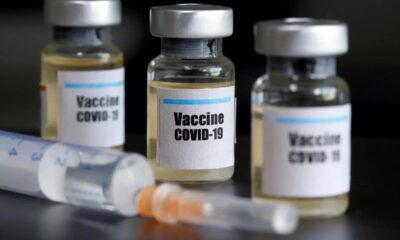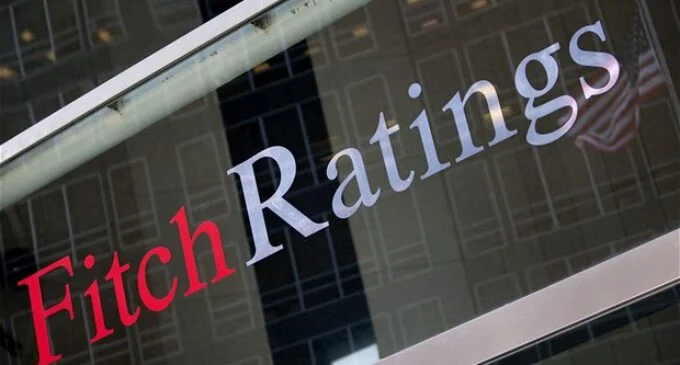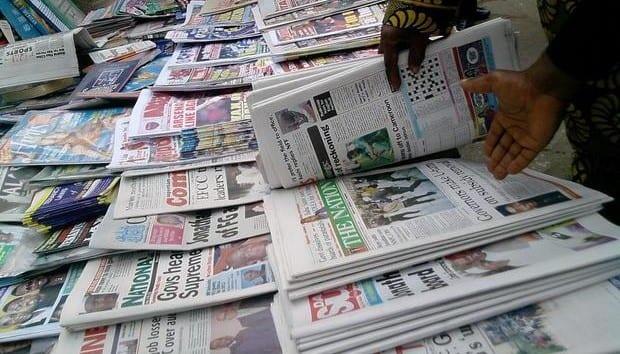The quest for a solution to the scourge of Human Immunodeficiency Virus (HIV) in Africa has recorded a setback as an experimental vaccine for the virus in Africa has been shut down after data showed the shots offered only limited protection against the virus, researchers have announced.
The vaccine, made by Johnson & Johnson (J&J), failed to provide sufficient protection against HIV in sub-Saharan Africa to young women, who accounted for a large number of infections in 2020.
Although the vaccine was found to be safe with no serious side effects reported, J&J said the study will not continue based on the efficacy data, a report published in the New York Times noted.
“Although this is certainly not the study outcome for which we had hoped, we must apply the knowledge learned from the … trial and continue our efforts to find a vaccine that will be protective against HIV,” said Anthony Fauci, director of the U.S. National Institute of Allergy and Infectious Diseases (NIAID).
The trial, called Imbokodo, tested an experimental vaccine in 2,600 young women deemed at high risk of H.I.V. infection in five sub-Saharan African countries. Women and girls accounted for almost two-thirds of new H.I.V. infections in the region last year.
The vaccine relied on an adenovirus called Ad26, modified to carry fragments of four H.I.V. subtypes into the body in hopes of provoking an immune response that might defend against infection.
Participants in the Imbokodo trial, which began in 2017, were given two initial shots and two boosters over the course of a year. Researchers tracked the numbers of new infections in the placebo and vaccine groups from the seventh month (one month after the third vaccination) through the 24th month.
Over two years, 63 of 1,109 participants who received the placebo were infected with H.I.V., compared with 51 of 1,079 participants who received the vaccine — giving the vaccine an efficacy rate of 25 per cent.
Mitchell Warren, executive director of AVAC, an advocacy group that lobbies for AIDS prevention and treatment, said the cancellation of the trial was a “reality check” amid excitement about new vaccine technologies.
“It’s a grand reminder that H.I.V. is a pathogen unlike any other in its complexity,” he said. “We know the platform worked, but what do we put in it? Because this virus is infecting the exact same immune system that we’re trying to boost with a vaccine.”
Earlier studies, including one carried out in Thailand, had indicated that the kind of antibodies this vaccine provoked might be sufficient to offer good protection from H.I.V. for at least an initial period of time.
“But in South Africa, the higher rates of H.I.V. incidence means you need something much more potent,” Glenda Gray, the principal investigator of the trial and chair of the South African Medical Research Council said.
He said the kind of immune responses that were induced were just not enough to stop the high attack rates seen in Africa
“When the disappointing data showed a low efficacy rate, guidelines set up before the trial dictated it should be shut down.
“A vaccine that offered only 25 per cent protection risked giving women a false sense of security,” Mr Gray said.
The results from the study are the latest setback to efforts to develop a vaccine to prevent the virus, which had infected over 37 million people globally as of 2020.
In Nigeria, about 1.9 million people under the age of 64 are living with HIV, data from a 2018 HIV/AIDS Indicator and Impact Survey (NAIIS) shows.
Approximately half of the projected population of HIV persons in the country are women, a new report by the National Bureau of Statistics (NBS) indicates.
Another trial was halted last year in South Africa after a different experimental vaccine failed to offer sufficient protection. Some 1.5 million people were infected with H.I.V. worldwide in 2020, and 38 million are living with the infection.
Scientists were dismayed by the most recent failure.
“I should be used to it by now, but you’re never used to it — you still put your heart and soul into it,” said Mr Gray.
Entirely new approaches may be needed. This month, Moderna announced that it would test a vaccine based on the mRNA platform used to devise the company’s coronavirus vaccine.
The J&J company said a parallel trial that uses a different iteration of this vaccine will continue. It is being tested on men who have sex with men and transgender people, in eight countries including Poland, Brazil and the United States.
That study, called Mosaico, is testing the vaccine against different subtypes of H.I.V. in different populations, and could produce different efficacy results.
Mr Gray said the lesson from the failed trial lies in figuring out why it worked for the 25 per cent of people who were protected and not for the others, and then trying to translate those clues into a recipe for a future vaccine.


 News3 years ago
News3 years ago
 Entertainment2 years ago
Entertainment2 years ago
 News3 years ago
News3 years ago
 Privacy3 years ago
Privacy3 years ago
 Sports2 years ago
Sports2 years ago
 Entertainment2 years ago
Entertainment2 years ago
 News3 years ago
News3 years ago
 Opinion3 years ago
Opinion3 years ago












